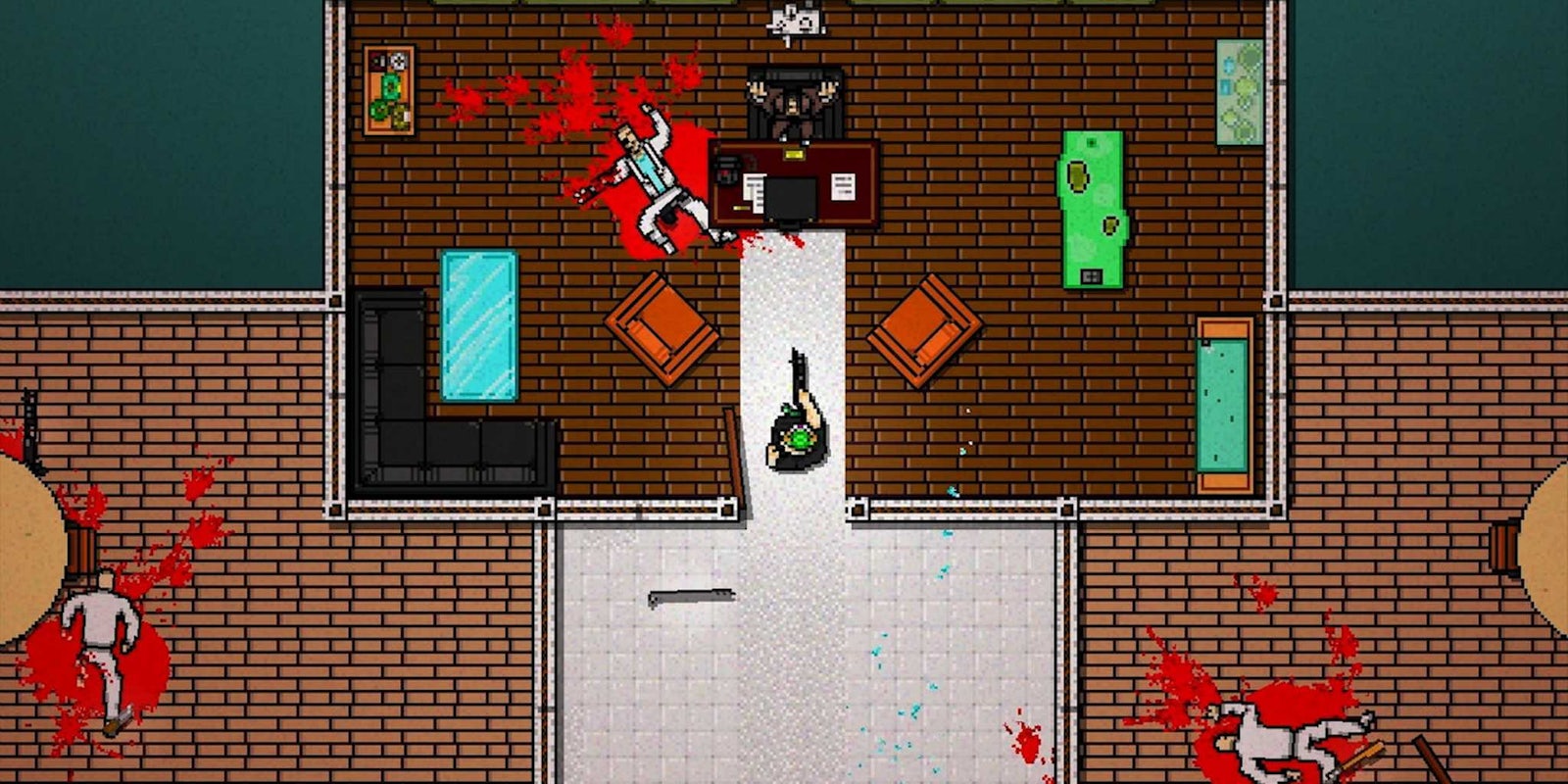Warning: This article contains descriptions of sexual violence that may be disturbing for some readers.
The upcoming Hotline Miami 2: Wrong Number cannot be sold in Australia, and publisher Devolver Digital is accusing the Australian Classification Board of stretching the facts to reach its decision to ban sales of the game.
When the Australian Classification Board denies giving a rating to a game, retailers can’t sell it in Australia. In essence, refusing to classify a video game means the game is de facto banned.
According to a copy of the Classification Board’s report obtained by the Daily Dot, the reason for the RC or “refused classification” rating.
1. Computer games that:
(a) depict, express or otherwise deal with matters of sex, drug misuse or addiction, crime, cruelty, violence or revolting or abhorrent phenomena in such a way that they offend against the standards of morality, decency and propriety generally accepted by reasonable adults to the extent that they should not be classified;” will be Refused Classification.
The report then details the specific game material in question, which takes place at the very beginning of the game and segues into an opening cutscene.
In the sequence of game play footage titled Midnight Animal, the protagonist character bursts into what appears to be a movie set and explicitly kills 4 people, who collapse to the floor in a pool of copious blood, often accompanied by blood splatter. After stomping on the head of a fifth male character, he strikes a female character wearing red underwear. She is knocked to the floor and is viewed lying face down in a pool of copious blood. The male character is viewed with his pants halfway down, partially exposing his buttocks. He is viewed pinning the female down by the arms and lying on top of her thrusting, implicitly raping her (either rear entry or anally) while her legs are viewed kicking as she struggles beneath him. This visual depiction of implied sexual violence is emphasised by it being mid-screen, with a red backdrop pulsating and the remainder of the screen being surrounded by black.
Devolver Digital and developer Dennaton Games responded with a joint statement issued today. “The sequence in question is presented below in context, both after choosing the uncut version of the game and after choosing to avoid content that alludes to sexual violence,” reads the statement.
https://www.youtube.com/watch?v=-sM2vUBHUyA
“Second, in response to the report itself, we are concerned and disappointed that a board of professionals tasked with evaluating and judging games fairly and honestly would stretch the facts to such a degree and issue a report that describes specific thrusting actions that are not simply present in the sequence in question and incorrectly portrays what was presented to them for review,” continues the statement.
The scene in question was considered problematic by some video game critics after they played a demo of the game in 2013. Developer Dennis Wedin discussed the scene in an interview with Rock, Paper, Shotgun.
“We were really sad that some people were so affected by it, because maybe they had been through something like that of their own,” said Wedin. “Maybe they had a terrible experience of their own that was triggered by the game. That was not intentional at all. We didn’t add the scene just to be controversial. There is a meaning to these two characters. There’s a lot more to them than just this scene.”
The Daily Dot contacted the Australian Classification Board to ask how the Board considers the context of content within a work of media during the process of deliberating on media classifications. There was no response by publication time.
“Though we have no plans to officially challenge the ruling, we stand by our developers, their creative vision for the storyline, its characters and the game and look forward to delivering Hotline Miami 2: Wrong Number to fans very soon,” concludes the joint statement from Devolver Digital and Dennaton Games.
Australia has a long history of effectively banning video games from being sold in the country, which often results in game developers and publishers releasing versions of the game that eliminate or alter content the Classification Board finds offensive.
The original Hotline Miami is a punishingly difficult, brutal action game which was nominated for multiple Independent Game Festival Awards in 2013, including the Seumas McNally Grand Prize.
Illustration courtesy of Devolver Digital


